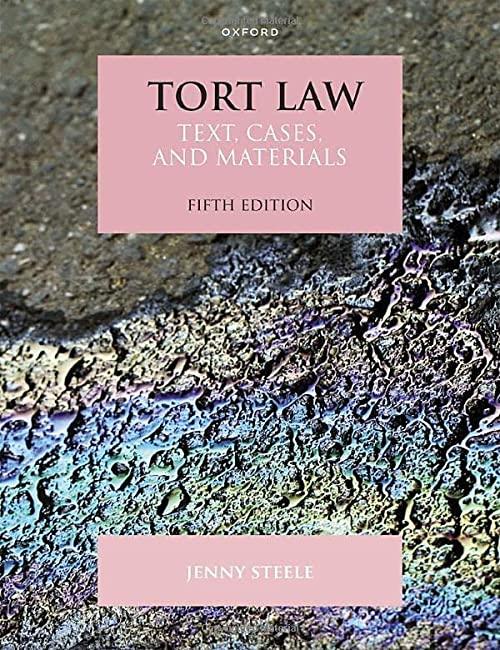Question
You, a Captain, are a section chief in Military Personnel and 2d Lt Smith's supervisor. Lt Smith is a Force Support Officer. She has been
You, a Captain, are a section chief in Military Personnel and 2d Lt Smith's supervisor. Lt
Smith is a Force Support Officer. She has been on active duty for a year and in her present
job for 10 months. She supervises 21 enlisted personnel who perform a variety of
administrative tasks in support of a tactical fighter wing. She majored in business
administration in college, served 3 years as an administrative specialist, and was an E-4
before being accepted for OTS. As an enlisted member, she graduated from technical
school as an honor graduate and was cited on numerous occasions for outstanding
performance. Her supervisors considered her a valuable asset to the unit and an expert in
her area of responsibility. She's very enthusiastic about her work and plans to make the Air
Force a career. Lieutenant Smith took over her job 2 months after the unit had received a
rating of "marginal" by the numbered Air Force Inspector General's evaluation team. At the
end of her first week on the job, Lt Smith called her NCOIC and key supervisors together
and told them that she wouldn't tolerate marginal performance, that she had previous
experience in this type of work and would be looking at the quality of their work very closely.
Since that time, Lt Smith has attempted to supervise every phase of work in her office and,
at times, has involved herself in even the most routine decisions. Lt Smith assigns people to
certain jobs within the office, plans the work schedule, leave schedule, and does most of the
counseling in the office. In the last 6 months, Lt Smith has ordered several people to work
overtime to complete routine work ahead of schedule. Each time this has happened, the
NCOIC has asked the lieutenant for permission to speak to her immediate supervisor. On
each occasion, the lieutenant has told the senior master sergeant he must not take these
internal problems to you, because she'll take care of any problems in her section--and the
NCOIC should remember who writes his EPR. Most of the time, when Lt Smith approaches
the work or break area where the workers are congregated, she notices all conversation
stops and the personnel won't talk to her unless she addresses them first. After reviewing a
report yesterday, Lt Smith became very impatient. She bypassed his NCOIC and took the
report directly to the Airman who had typed it. While Lt Smith was berating the Airman about
the typing errors, the NCOIC walked into the office and asked the Airman what the problem
was. The lieutenant became flustered, told the NCOIC she was tired of doing his job for him,
and shoved the report into his hands. Lt Smith then went into her office and slammed the
door.
Q) The NCOIC relayed this situation to you and asked for your help. How will you help?
Step by Step Solution
There are 3 Steps involved in it
Step: 1

Get Instant Access to Expert-Tailored Solutions
See step-by-step solutions with expert insights and AI powered tools for academic success
Step: 2

Step: 3

Ace Your Homework with AI
Get the answers you need in no time with our AI-driven, step-by-step assistance
Get Started


